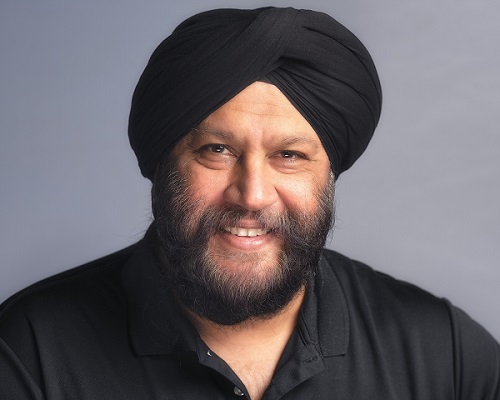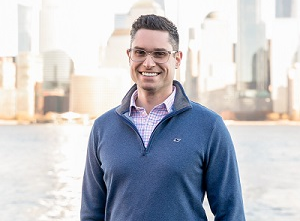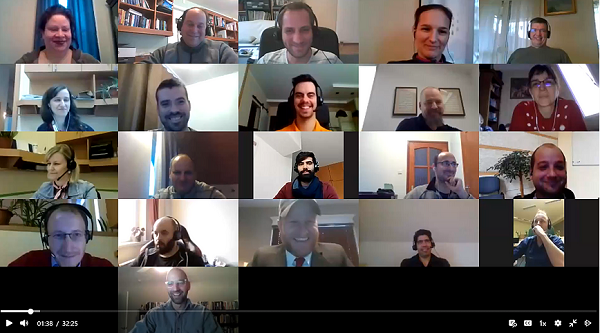Interview with Jassi Chadha, Whose Berkeley Heights Life-Sciences Software Company Axtria Recently Raised $150 Million
Word came last month that Axtria (Berkeley Heights), a high-growth technology company founded in 2010, had received $150 million in a funding round from the Bain Capital Tech Opportunities Fund ( Boston).
The investment raised Axtria’s valuation to almost a billion dollars, Jassi Chadha, CEO and president, confirmed in a recent interview.
Axtria is a global provider of cloud software, data analytics and artificial-intelligence technology to the life sciences industry. The company has grown tremendously over the years, and has gone through several rounds of financing, but Bain Capital is new to the company’s capitalization table, and represents the largest investment to-date.
Essentially, Axtria’s vision is to build an ecosystem for the life sciences industry, so pharma and medical-device companies can run all their commercial operations on a cloud platform.
Axtria has about 500 employees in New Jersey and more than 2,000 world-wide. The company has appeared on many “fastest growing” lists over the last 10 years. Right now, for example, it is one of the top 100 privately held companies in New Jersey.
The company has not only grown fast, however. It has also grown in the right way, keeping the health and needs of its employees in mind, and maintaining a carefully designed cultural ecosystem, Chadha told us. So, Axtria is also to be found on many “best companies to work for” lists. According to the company’s website, “Our values are all about doing the ‘RIGHT’ thing — any time, all the time — for our employees and customers, even when no one is watching.”
Almost all the company’s executives are based in New Jersey, as are the company’s solution-architecture, product-management and product-engineering teams. Also here are all the company’s customer delivery teams for the pharmaceutical companies located in New Jersey.
Axtria recruits graduates from top schools like Stanford, Lehigh, Michigan, Purdue, Penn State and Cornell. They are engineers, mathematical statisticians and computer science majors. They come to New Jersey, and they train here. Also, the company looks for experienced professionals who know the pharma industry well.
Our interview begins here:
How did Axtria become acquainted with Bain Capital?
JC: This is the first investment that Bain Capital has made in Axtria. …We’ve been talking to them for a number of years. It’s a classic thing. When you are growing and make news in terms of high growth rates or new customer wins or new product launches, all investment groups have marketing and sales teams that will knock on the door. We get a lot of inbound calls from large U.S. private equity firms and large venture capital funds and even some foreign funds. A lot of them we know because we’ve participated in conferences run by private equity or investment bankers. We participated in one last year that was run by William Blair [New York], an investment banking firm. We met with Bain Capital again, along with a lot of other companies. We decided to only meet with seven, but there were 17 or 18 companies that were options, and a wait list of over 40 companies who wanted to talk to us, so we were highly sought after. There are very few tech companies like us that are of scale; growing very, very rapidly; and who have not taken a lot of outside investment.
Why was Axtria able to attract so many suitors?
JC: A lot of companies, as you know, think of an idea and they want to raise $100 million. They often spend that $100 million to get their first revenues. After that, they usually remain unprofitable for many years. We, on the other hand, have been very disciplined about raising capital and leveraging capital. At the same time, we’ve been able to build scale, build amazing products and be profitable. And we have done that largely without institutional investment.
Technically, we did have one institutional investor in the company prior to Bain — a small venture capital firm called Helion Venture Partners [Port Louis, Mauritius, and Gurgaon, India]. Most of the funding that we have had so far before Bain Capital came in has come from some really smart entrepreneurs like Richard Braddock, Fred Khosravi, Amarpreet Sawhney, Desh Deshpande, and Sanjeev Aggarwal, who built some very successful large companies. Obviously, a lot of people can offer money, but very few people can add value. So far, we have done well with the strategic and investment partners we have worked with. Bain Capital is the first institutional investor coming in, 10 years into our growth journey.
What was it about Bain that prompted you to accept their capital, since you were able to choose?
JC: At some point it does become harder to distinguish between investors. And it also sometimes comes down to personal chemistry. For us, the culture in the industry is very important, and it’s not only about the company, but also about the investors. Before we actually went into the financial diligence process with Bain, we requested that the person who was going to be our primary contact to come in and meet our board. We have a proud culture among our board members. So, we did as much due diligence on them as they did on us.
They have an amazing platform, and are a great firm with a great track record in venture capital and private equity investment. The Bain fund that specifically invested in us is called the “Bain Capital Tech Opportunities Fund.” This is a relatively new fund for them. It has been set up as a separate organization to only invest in tech companies. … The fund is well financed, with about $1.5 billion. The second thing is that Bain knows healthcare and life sciences really well. They invest in a lot of pharma and biotech companies, in both venture capital and private equity; but they also have invested in many healthcare tech companies, so they understand our business case really well. Also, a lot of the private equity and venture capital firms we talked to were based in Silicon Valley. This team is based in Boston, not too far away from our headquarters in Berkley Heights, New Jersey.
Most of the firms we worked with in the past were highly focused on the financials, which is what they should be absolutely focused on. But we also liked that the Bain Tech Opportunities Fund worked with Bain’s management consulting division to do a whole deep dive into our management strategy. They had a more holistic view of our business, while the other firms were almost solely financially oriented.
How did you pull this off during the pandemic?
JC: Well, we actually only had one face-to-face meeting with our investors, and that was after the term sheet was on the table and signed. Both Bain’s representative, Darren Abrahamson, and I were double vaccinated, so we said it was safe enough for us to meet and shake hands before we became financial partners. Otherwise, we ran this entire process virtually, even the investor conferences that we spoke about earlier. What we found was that, for investors who knew us, the process was relatively easy for us to continue interacting with them. We were in some ways fortunate because at scale we grew 50 percent last year, and have always been a fast-growing company. And there is this buzz around us right now. I mean we’ve been adding a lot more people, won a lot of awards and all that, so it’s easier for investors to find us.
How will Axtria make use of the funds?
JC: We have been investing very heavily in products and are investing very heavily in building scale because our target customers are global life sciences companies. We also work with some smaller and medium-sized organizations, but we work primarily with large global companies who license our products all over the world. Our software operates in more than 50 countries, and our customers expect us to actually have operations in a lot of countries where they operate.
The biggest use of capital is going to be to accelerate our investment in products. For example, we have invested more than $50 million in products and we are committing to investing no less than $100 million in our future product evolution.
Today there is not a single life sciences company that can be enabled to run all their commercial operations on a single cloud platform. There are consultants running around doing data analytics and there are ad hoc systems that don’t talk to each other, and become obsolete within a couple of years because no upgrades are made.
In a product-based business, you actually have a product roadmap which is getting better with every release and in the cloud world, you will have a new release about every three to four months, which means your product gets continually upgraded over time.
We also want to scale our delivery centers globally. The third use of the funding is going to be to have a geographic presence in every major market where we operate. North America continues to be our primary target customer market. We just opened a new office in Canada, and we already have people and operations in major European countries like Switzerland, France, Germany and the UK. We want to have our delivery and consulting teams based in China and in Japan, two major pharmaceutical manufacturing areas.
[See also: How Axtria is Helping Employees and Their Families Cope with the COVID Crisis in India]




